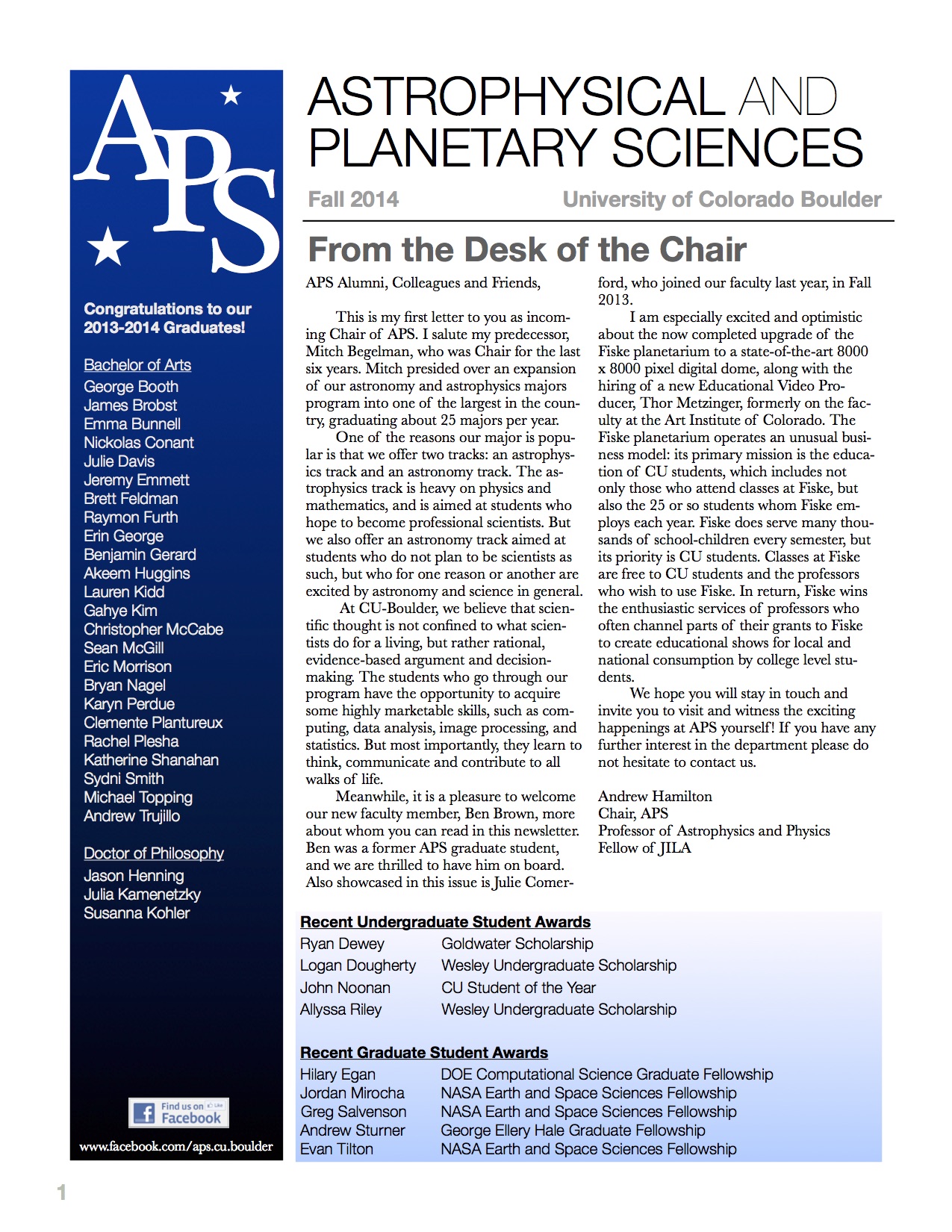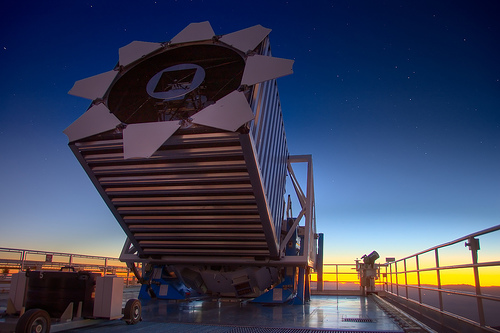|
PLEASE NOTE: THE APS DEPARTMENT WEBSITE HAS MOVED. WHILE THIS WEBSITE REMAINS ACTIVE, IT IS NOT MAINTAINED SO LINKS AND INFORMATION MAY BE OUT OF DATE. PLEASE VISIT OUR NEW SITE.
The Department of Astrophysical and Planetary Sciences at the University of Colorado
teaches and researches the areas of Astrophysics &
Astronomy, Planetary Science, Fluid Dynamics, Plasma Physics,
Solar Physics, and Space Physics. The APS Department has 25
rostered faculty,
roughly 45 research and affiliated faculty, 54
graduate students,
and 160 undergraduate majors.
Read the latest about us in the Fall 2014
Department Newsletter! (1 MB PDF Download) 

|
|

|
| |
APS News

The Sloan 2.5 m telescope at Apache Point, NM. |
- Dan Baker, Distinguished Professor in APS and Physics,
and Director of LASP, has been selected to receive the
2015
Shen Kuo Medal at the International Union of Geodesy and Geophysics
(IUGG) meeting in Prague this summer. Professor Baker will also be
traveling to India to receive the Vikram
A. Sarabhai Professorship and Prize from the nation's Physical Research Laboratory.
- APS postdoctoral fellow Emily Levesque wins the AAS
Annie Jump Cannon award for outstanding research for her
work using gamma ray bursts. Read more...
- APS Professor Jean-Michel Desert is part of a collaboration presenting definitive evidence of clouds in the atmosphere of a planet orbiting another star. See the artice in Nature...
- CU Boulder has become a full institutional member
of the Sloan Digital Sky Survey-IV, which will map
the Northern sky in three dimensions to learn more
about the structure and evolution of the universe. Read
more...
- CU Boulder's Fiske Planetarium, directed by APS
Professor Doug Duncan, has undergone a complete
upgrade, transforming the planetarium into one of
the most advanced theaters in the country. Read
more...
|
|

|
|

|

|
|

|
| |
Current Projects
-
Professor Jason Glenn
is leading CU-Boulder's involvement
in the design and construction of the
Cornell-Caltech-Atacama Telescope (CCAT),
a 25-meter sub-millimeter telescope to be located in
Chile's Atacama desert. CCAT will study solar
systems, stars, and galaxies at the earliest stages
of their formation. Professors
John Bally,
Jack Burns,
Webster Cash,
Jeremy Darling,
and Michael Shull
are also involved in the CCAT project.
-
Professor Jack Burns
is leading CU-Boulder's involvement
in the $6.5 million NASA-funded Lunar Science
Institute "LUNAR"
to study gravitational physics, solar physics and
particle acceleration, and low-frequency cosmology
applied to times when the Universe was in its
infancy.
-
ARC
Telescope Proposal Form: More information on the
ARC 3.5-m telescope and how to propose an
observation.
- Be sure
to visit our ongoing
faculty research for more information.
|
|

|
|

|
Browser Requirements: You
must have JavaScript enabled to properly
view this site. Please also ensure that you have the most
recent version of your browser installed. |


